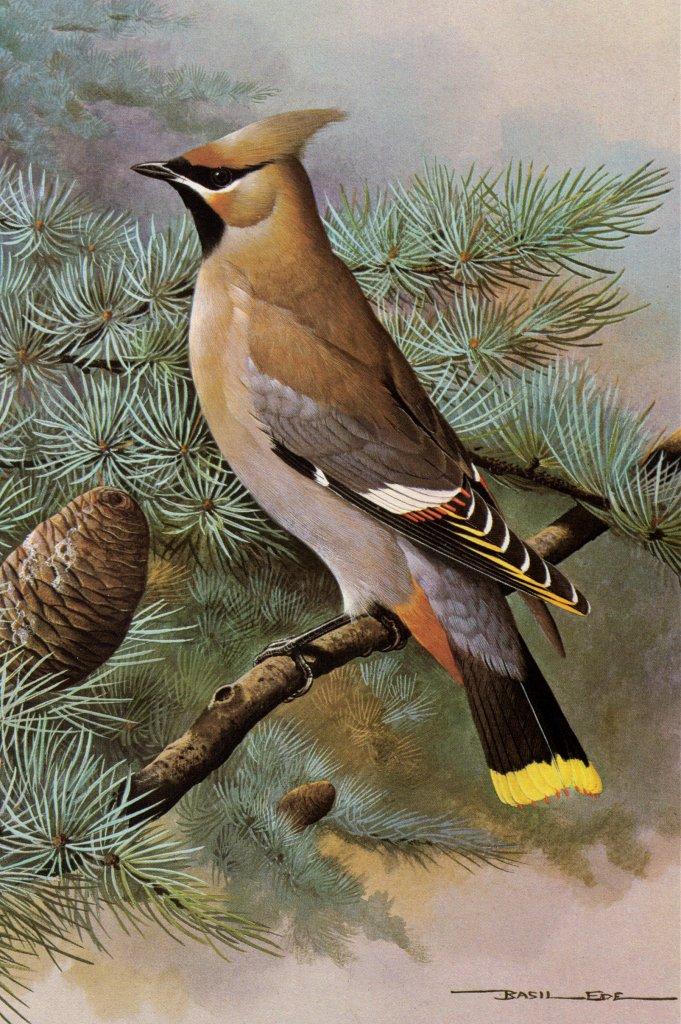|
| Query: Birds of europe | Result: 634th of 1707 | |
[Animal Art - Basil Ede] Bohemian Waxwing (Bombycilla garrulus) <!--황여새-->
| Subject: | [Animal Art - Basil Ede] Bohemian Waxwing (Bombycilla garrulus)
| |

| Resolution: 681x1024
File Size: 173741 Bytes
Upload Date: 2004:12:24 15:42:40
|
ERROR : Server Busy(-1105)
ERROR : Server Busy(-1105)
[Animal Art - Basil Ede] Bohemian Waxwing (Bombycilla garrulus)
From: "Carter"
Newsgroups: alt.binaries.pictures.artpics
Subject: Basil Ede... Bohemian Waxwing
Date: Mon, 25 Dec 2000 20:54:27 -0000
Basil Ede
Bohemian Waxwing
BasilEde_BritishBirds-Waxwing_NC.jpg
|
Comments |
|---|
| | Guest |
|
| Bohemian Waxwing (Bombycilla garrulus) is a member of the waxwing family of passerines. A sleek bird, 8-21 cm long with a pointed crest, it travels in large, nomadic groups with a strong, direct flight. It breeds in coniferous forests throughout the most northern parts of Europe, Asia and western North America. |
^o^
Animal Pictures Archive for smart phones
^o^
|
|
|